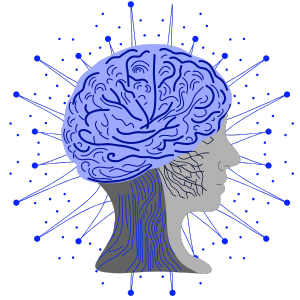A Safe, Supportive Path for Children to Process Trauma, Rebuild Trust, and Regain Emotional Strength
Trauma can deeply impact a child’s sense of safety, self-worth, and ability to cope. Whether from abuse, loss, medical trauma, natural disasters, or witnessing violence — the emotional effects may linger silently through behavior, fear, or withdrawal.
Trauma-Focused Cognitive Behavioral Therapy (TF-CBT) is an evidence-based, structured psychotherapy designed specifically to help children and adolescents recover from traumatic experiences.
Dr. Sathiya Ganesan, Consultant in Child and Adolescent Psychiatry, provides TF-CBT as part of a compassionate, trauma-informed care model — helping young minds heal and families grow stronger together.
Understanding TF-CBT
Helping Children Process Trauma, Rebuild Control, and Move Forward with Resilience

TF-CBT combines cognitive behavioral techniques with trauma-sensitive support, teaching children how to manage distressing memories, reduce fear and shame, and regain emotional control. It also involves parents or caregivers to ensure a consistent support system at home.
TF-CBT is ideal for children and adolescents who have experienced:
- Physical, emotional, or sexual abuse
- Sudden loss of a parent or loved one
- Domestic violence or parental conflict
- Bullying, war, or community violence
- Serious medical procedures or accidents
- Neglect, abandonment, or foster care transitions
Trauma doesn’t always show on the outside — TF-CBT helps children name it, face it, and grow stronger from it.
Signs a Child May Benefit from TF-CBT
- Nightmares, sleep issues, or flashbacks
- Sudden anger, withdrawal, or regression
- Anxiety, fear, or panic when reminded of the event
- Trouble focusing or engaging in school
- Avoidance of places, people, or conversations
- Overwhelming guilt, shame, or sadness
- Self-harm or changes in eating and behavior patterns
TF-CBT provides children with a safe way to understand their trauma and regain a sense of emotional safety.
What Happens in TF-CBT?
Dr. Sathiya Ganesan uses a step-by-step approach that includes:
- Psychoeducation – helping children and parents understand trauma
- Relaxation and emotional regulation skills
- Cognitive coping – identifying and reframing unhelpful thoughts
- Gradual trauma narration – processing memories safely
- In vivo exposure – reducing avoidance and fear
- Parent-child sessions – improving communication and support
- Enhancing safety and future development
Each session is guided by the child’s readiness and emotional capacity. The goal is not to relive the trauma, but to gain power over it.
Key Benefits of TF-CBT
- Reduces trauma-related anxiety, depression, and fear
- Builds emotional resilience and self-soothing skills
- Corrects distorted thinking tied to guilt or blame
- Improves behavior, focus, and school performance
- Strengthens trust, attachment, and family connection
- Empowers children to speak their truth and feel safe again
TF-CBT helps children reclaim their voice, stability, and sense of self.
Family Involvement in TF-CBT
Parents or caregivers play an active role in TF-CBT through:
- Learning how trauma affects brain and behavior
- Practicing co-regulation and calm responses
- Rebuilding trust and attachment through shared sessions
- Supporting the child’s recovery journey at home
This shared healing approach ensures long-term safety, consistency, and growth.
When TF-CBT Is Combined With Other Therapies
TF-CBT can be integrated with:
- Psychiatry and medication (if required)
- Play therapy and expressive therapies (art, music)
- Sensory integration and occupational therapy
- School-based support and IEP planning
Dr. Ganesan ensures that TF-CBT fits into a child’s overall healing journey, offering a full-circle care model.
Online TF-CBT Consultations and Support
While in-person therapy is ideal, Dr. Sathiya Ganesan offers online TF-CBT-informed guidance for:
- Initial trauma screening and therapy planning
- Parent coaching and emotional support
- Ongoing progress monitoring
- Resource-sharing and crisis planning

Why Choose Trauma-Focused CBT With Dr. Sathiya Ganesan?
With extensive experience in childhood trauma, emotional regulation, and family systems, Dr. Sathiya Ganesan delivers TF-CBT that is:
- Safe, structured, and developmentally appropriate
- Rooted in empathy and trust-building
- Personalized to the child’s emotional readiness
- Focused on long-term resilience and recovery
He walks with families through the pain of trauma — and toward the light of healing.
A Trauma May Shake Their World — But It Doesn’t Have to Define It
If your child has faced trauma and is struggling to cope, TF-CBT offers a safe, supported path to emotional healing. Contact Dr. Sathiya Ganesan today to begin therapy that gently transforms pain into strength.
Is TF-CBT appropriate for young children?
Yes. TF-CBT can be adapted for children as young as 4–5 years old, using age-appropriate tools, stories, and support.
How long does TF-CBT take?
Typically 12–20 sessions, though the timeline may vary depending on the child’s trauma history and progress.
Will my child have to talk about the trauma?
Yes — but only when ready, and in a structured, supportive way that builds emotional safety.
Can parents join sessions?
Yes. Parent or caregiver involvement is a key part of TF-CBT, helping the child feel supported and understood.
Is medication needed during TF-CBT?
Not always. However, if symptoms like severe anxiety, sleep disturbances, or depression interfere with therapy, medication may be considered as part of integrated care.


